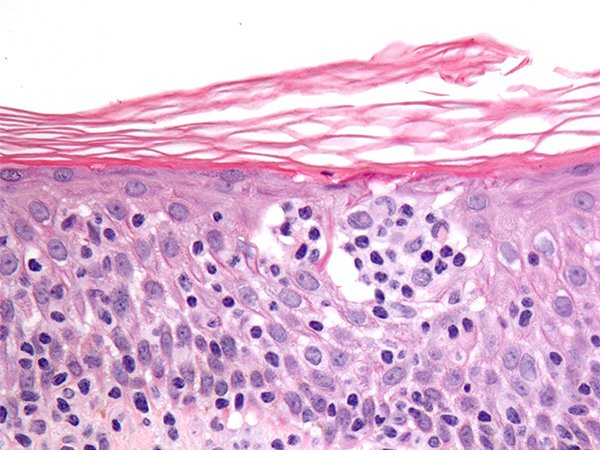First Immunotherapeutic for Rare Types of Non-Hodgkin Lymphoma
The FDA has approved a new immunotherapeutic for treating two types of cutaneous T-cell lymphoma, mycosis fungoides and Sézary syndrome.

The U.S. Food and Drug Administration (FDA) recently approved a new immunotherapeutic called mogamulizumab-kpkc (Poteligeo) for treating certain patients with two rare types of non-Hodgkin lymphoma, mycosis fungoides and Sézary syndrome.
Specifically, mogamulizumab-kpkc is intended for the treatment of adults who have mycosis fungoides or Sézary syndrome that has not responded to or has relapsed after treatment with at least one other systemic therapy.
Mycosis fungoides and Sézary syndrome are types of non-Hodgkin lymphoma that arise in immune cells called T cells. In these diseases, the cancerous T cells accumulate in the skin, resulting in an itchy, red rash. Non-Hodgkin lymphomas with these disease characteristics are grouped together and called cutaneous cutaneous T-cell lymphomas.
Cutaneous T-cell lymphomas are rare types of cancer. Researchers estimate that there are about 6.4 cases of these diseases per million persons in the United States. Mycosis fungoides and Sézary syndrome account for about two-thirds of cutaneous T-cell lymphomas.
In many cases, the cancerous T cells in patients with mycosis fungoides or Sézary syndrome have a protein called CCR4 on their surface. Mogamulizumab-kpkc targets CCR4. Once the immunotherapeutic attaches to CCR4 on the surface of the cancerous T cells, it flags the cancer cells to immune cells, which upon attaching to another part of mogamulizumab-kpkc are triggered to destroy the cancer cells.
The FDA approval of mogamulizumab-kpkc was based on results from the MAVORIC phase III clinical trial, which were published in Lancet Oncology. The results showed that mogamulizumab-kpkc more than doubled the length of time before disease progressed compared with vorinostat (Zolinza), which is a standard treatment for patients with mycosis fungoides or Sézary syndrome that has not responded to or has relapsed after treatment. The median time before disease progressed was 7.6 months among those who received mogamulizumab-kpkc versus 3.1 months among those who received vorinostat.
The FDA approval was rendered on Aug. 8, 2018.
